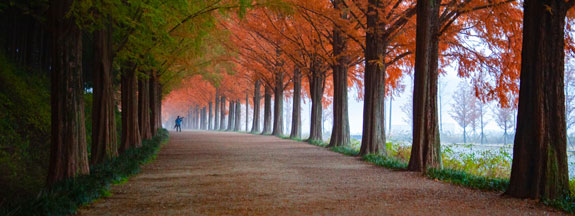The Lord’s Prayer
The AA group I am in is called “Open Minded Mens”. I’d say about half of the group is LGBT. And the majority is non-religious. Visiting a group on the East Coast, obviously they are very devoutly Christian, so it was an interesting experience.
At the end of my meeting, we all join hands and say the Serenity Prayer. But this group said the Serenity Prayer at the beginning and The Lord’s Prayer at the end. It was awkward having to pray to the Christian god, so I just held hands with them and bowed my head politely, but I didn’t speak.
When I talked to my sponsor on the phone today, he said “there’s some good stuff in the Lord’s Prayer, even for Buddhists” so I decided to explore it a bit more.
The 12 Step Buddhist talked about this same dilemma too. So I guess I am not alone. He provides a PDF entitled Integration of Metaphysical Christianity with Intrinsic Buddha Nature of the Third Turning of the Wheel of Dharma in the context of Recovery within AA’s Twelve Steps.
Here is a great translation into Buddhist principles by Elephant Journal and ZenDirtZenDust that I found:
Our eternal source and Self, timeless, stainless, dwelling always in infinite bliss (“Our father, who art in heaven”) May we always remember the sky-like being we really are by the power of this mantra (“Hallowed be thy name”) And by remembering the timeless being we are, make this present life blissful and infinite too (“Thy kingdom come, thy will be done on earth as it is in Heaven”) We would be lost, nothing at all, if we didn’t rely every moment on awareness emanating from the unbelievable treasury of clear light (“Give us this day our daily bread”) By following this pathless Buddha Way we can stop holding grudges and behold the truth of our infinite being free of karmic delusions (“And forgive us our debts, as we forgive our debtors”) By realizing this boundless giving Self we are, we can avoid turning into demons suffering and hating in the countless hell realms (“And lead us not into temptation, but deliver us from evil”) Because our unstained Nature is the origin all all goodness, all love, and all ability whatsoever, throughout past present and future worlds (“For thine is the kingdom and the power and the glory for ever”) Clap-clap. Done! It’s always just like this! (“Amen”)
Prayer is weird to me. I don’t believe in a higher power. I don’t know who I’m praying to. So looking into this more has been interesting. I found another website by an Atheist Buddhist (what I identify as) and he talked about what he does to “pray” and on a presentation that he gave a church, how he can be an Atheist and yet still be spiritual as well.
The teachings of the Buddha went something to the effect of: Don’t be fooled into believing things that you cannot test scientifically and verify empirically for yourselves. Don’t be suckered into taking things on faith or believing a dogma or doctrine for any reason other than the fact that you have proven it to be true for yourself. That is how I life. That is why I am an Atheist. Show me proof. I want to be able to verify it scientifically.
"You won't find me kneeling at the edge of my bed each night with my palms pressed together, eyes shut tight, and face skyward reciting the Lord's Prayer followed by an effort to ask an unseen man in the sky for forgiveness of sins, comfort for the sick, and the winning Powerball numbers for next week's drawing. That's not my understanding of prayer."
I agree with my fellow Atheist Buddhist here. I definitely don’t pray to a higher power, but I do practice loving kindness (metta meditation) while genuinely trying to be compassionate and empathetic.
"For me, prayer should be an internal process that leads to the development of intention and commitment and not a request for external intervention or a signal of resignation." "When approached from the Zen-Buddhist-Atheist perspective, prayer leads to action. I guess that's one of the key differences between what I'm talking about and the notion that prayer is a petition for help from "out there" somewhere. I don't accept that there is an "out there" from where answers to prayers can come. I am convinced that the answers come from within and we can arrive at them through this kind of prayer. "
This boils down to the Four Noble Truths of Buddhism:
- Life has suffering.
- Suffering is caused by lust over things which puts us at odds with the way life really is.
- To end the suffering, end the lust. We cannot change what happens to us, but we can change how we respond to them.
- There is a path out of suffering, the Noble Eightfold Path.
Salvation is not out there. It already exists inside of us.
Worship is gratitude, but not directed at an external source and certainly not invested in a being or deity. It’s gratitude for and from the one source of all that exists.
The Buddha’s Prayer on Loving Kindness
This is what should be done By one who is skilled in goodness, And who knows the path of peace: Let them be able and upright, Straightforward and gentle in speech. Humble and not conceited, Contented and easily satisfied. Unburdened with duties and frugal in their ways. Peaceful and calm, and wise and skilful, Not proud and demanding in nature. Let them not do the slightest thing That the wise would later reprove. Wishing: In gladness and in safety, May all beings be at ease. Whatever living beings there may be; Whether they are weak or strong, omitting none, The great or the mighty, medium, short or small, The seen and the unseen, Those living near and far away, Those born and to-be-born, May all beings be at ease! Let none deceive another, Or despise any being in any state. Let none through anger or ill-will Wish harm upon another. Even as a mother protects with her life Her child, her only child, So with a boundless heart Should one cherish all living beings: Radiating kindness over the entire world Spreading upwards to the skies, And downwards to the depths; Outwards and unbounded, Freed from hatred and ill-will. Whether standing or walking, seated or lying down Free from drowsiness, One should sustain this recollection. This is said to be the sublime abiding. By not holding to fixed views, The pure-hearted one, having clarity of vision, Being freed from all sense desires, Is not born again into this world.
Now that I have more insight into The Lord’s Prayer from a Buddhist Perspective, I can feel about prayer and worship in general at these more Christian-oriented meetings.




Leave a Comment